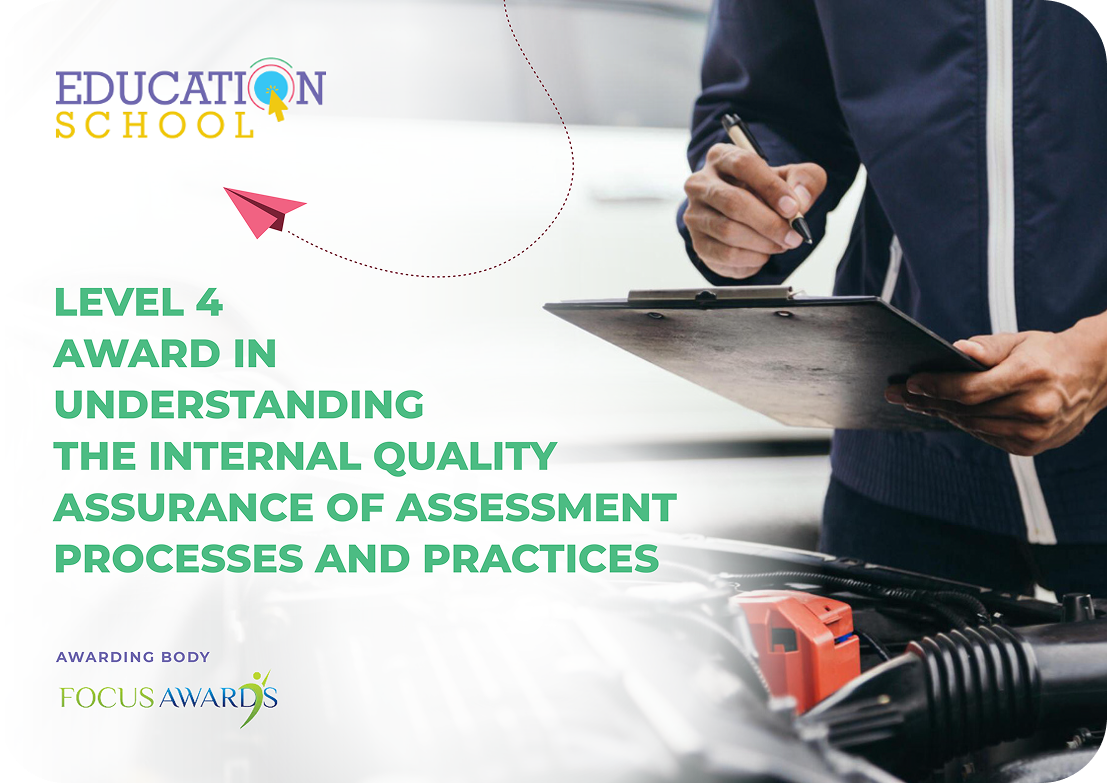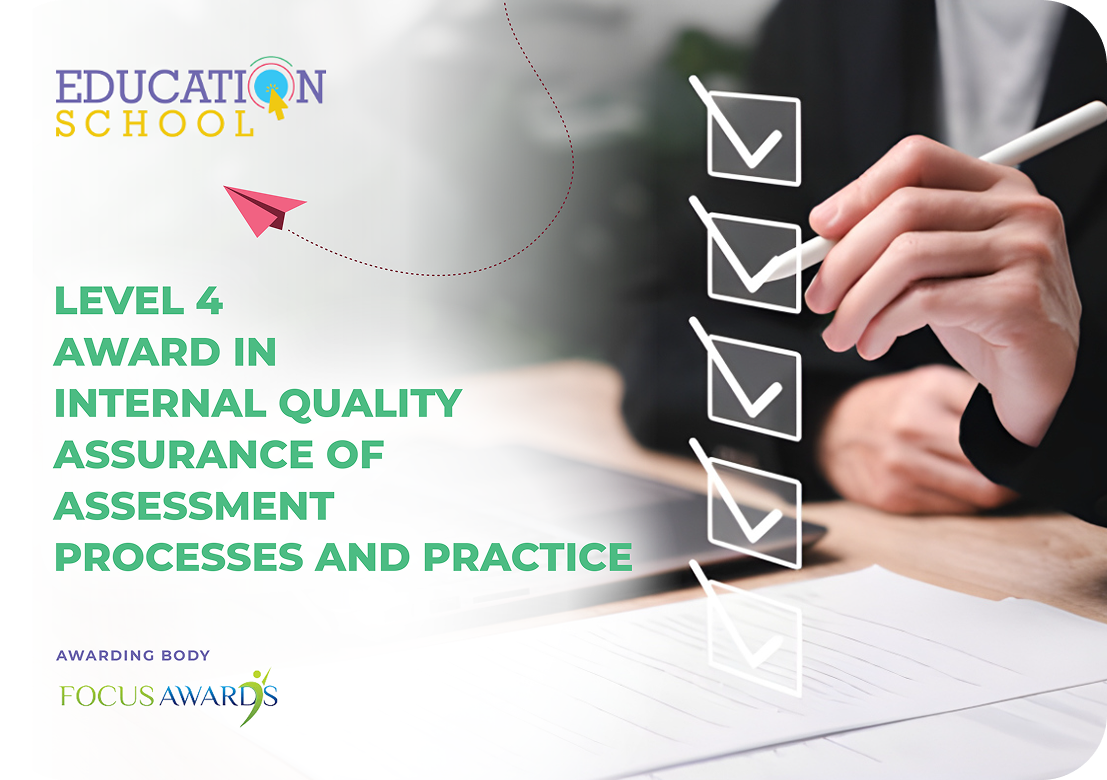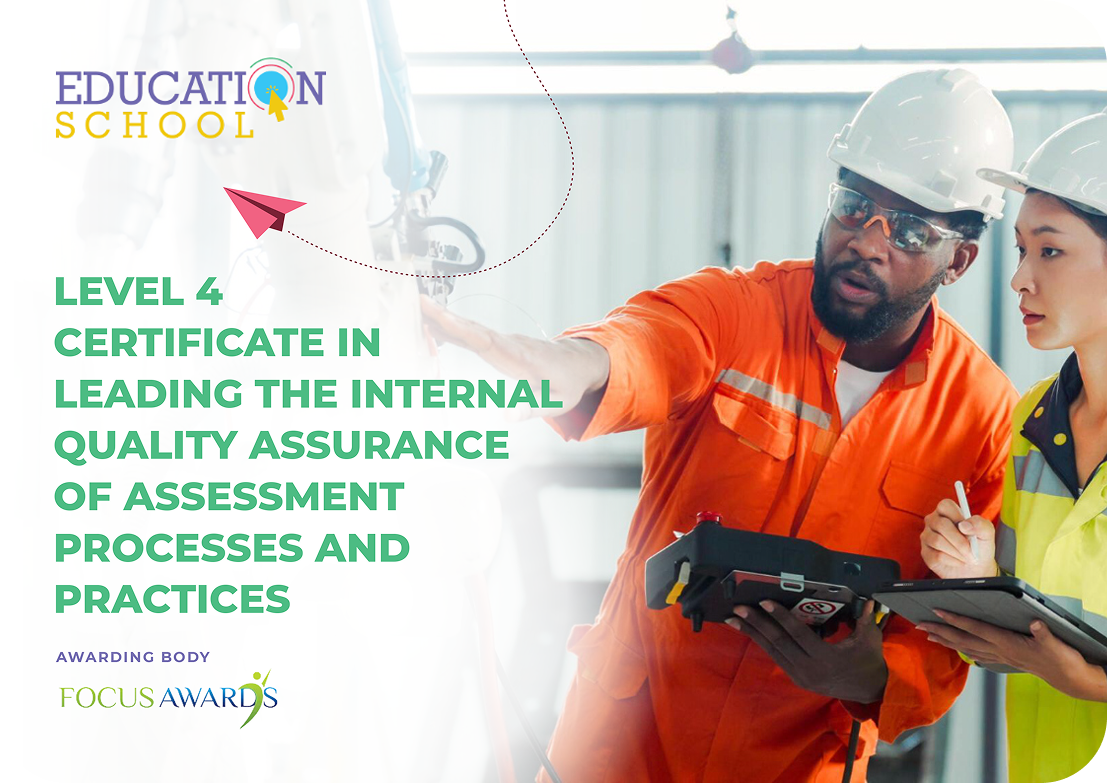Introduction
If you work in the field of education, training, or assessment, you may have already heard of the term IQA qualification. An IQA (Internal Quality Assurance) within a centre/organisation is the person whose mandate is to oversee the quality of the assessment process within a centre or an organisation. It is not solely a certificate, but a symbol of professionalism to ensure that the quality of assessment and training is optimal and standardised.
This applies regardless of whether the individual is an experienced professional interested in advancement or someone aiming to transition into a quality assurance role. The following blog will help you understand the basics of what is involved in an IQA qualification, its importance, and how you can become a certified IQA.
What is an IQA Qualification?
IQA (Internal Quality Assurance) qualification is an Ofqual regulated qualification with a solid potential to be used as an appropriate formal course. Trainee IQAs completing this qualification are able to work in a supervisory position where they assess the work of assessors, advise, and make sure that learners are not treated in an unjust manner or are not disadvantaged anywhere in the assessment exercise. It is a critical requirement of being in a position to act as a leader in the quality assurance of assessment within a vocational education and training (VET) organisation as IQAs check the quality of the assessment process and contribute to standardisation of assessment procedures.

Why is an IQA Qualification Important?
An IQA award is important for maintaining the integrity of assessment in education. IQAs can help in achieving requirements and making the learning experience fruitful. The importance of this qualification is evident through various reasons, some of which are the following:
IQAs ensure that what has been passed is confirmed by the assessor and the assessment is standardised among various learners and trainers.
Awarding organisations usually insist on providers using IQAs who are qualified as a condition of their ongoing approval.
There exists a strong internal QA process in such a way that learners may be confident in the fair judgments of assessment and obtain the support they need.
Concerted effort to meet this qualification reflects the intention to best practice and ongoing personal development.
Types of IQA Qualifications
IQA has a variety of choices based on your experience and career options. The most important are the Level 4 Award in Understanding the Internal Quality Assurance of Assessment Processes and Practices, Level 4 Award in the Internal Quality Assurance and the Level 4 Certificate in Leading the Internal Quality Assurance.
Our Level 4 Award in Understanding the Internal Quality Assurance of Assessment Processes and Practices is basically an introductory course for those who wish to understand the quality assurance of the assessment processes and practices without getting practical experience.

Another option could be our Level 4 Award in the Internal Quality Assurance of Assessment Processes and Practice which is the most popular and entry-level qualification in IQA. It allows you to observe assessors; however does not necessarily involve having responsibilities in quality assurance mechanisms management.

Level 4 Certificate in Leading the Internal Quality Assurance of Assessment Processes and Practice is an additional certification that includes the management and coordination aspect of IQA procedures. It is best suitable for somebody who heads a team of assessors or a person who is in charge of quality operations in a centre.

Others can also take up the standalone units, provided that they are experienced already or are interested in working towards a full certificate in the future. Should you be making a decision on your route, make sure the IQA course that you take is Ofqual-regulated and provided by a recognised training provider.
When you intend to pursue a profession as an Internal Quality Assurer (IQA), you need to start with a solid foundation in assessment. The majority of IQA roles prefer that you are an occupationally competent assessor and hold a qualification like the Level 3 Certificate in Assessing Vocational Achievement (CAVA) or an approved equivalent assessing qualification. This assures that you know the assessment criteria, delivery of feedback, and how to engage learners in your area of subject. However, this is not always mandatory.

Career Paths
Once an individual acquires the IQA qualification, they have a variety of career options based on experience such as the following:


Jobs are popular in training centres, FE colleges, and apprenticeship providers; they are even used in corporate L&D (Learning & Development) organisations.
Salary Expectations
A teaching assessor, entry into an IQA in the UK could cost you up to £30,000 – £40,000 a year, experienced or senior IQAs can command as much as £39,000+.
Depending on the number of hours, freelance IQAs are allowed to invoice between £165 – £200 per day. Listing this difference on your resume will signal future employers that you are not playing around when it comes to pursuing quality assurance and that you have an interest in upholding high educational requirements.
Final Thoughts
The IQA qualification acts as a tool to improve the quality of assessments and your career in education and training. Becoming a certified Internal Quality Assurer is an investment that will pay dividends long after certification is complete.


To sum this up, The Education School offers all 3 accredited IQA training courses that integrate with your professional needs. Once you are ready to move to the next step, and wish to learn more or get professional assistance, contact us at +442081784802





